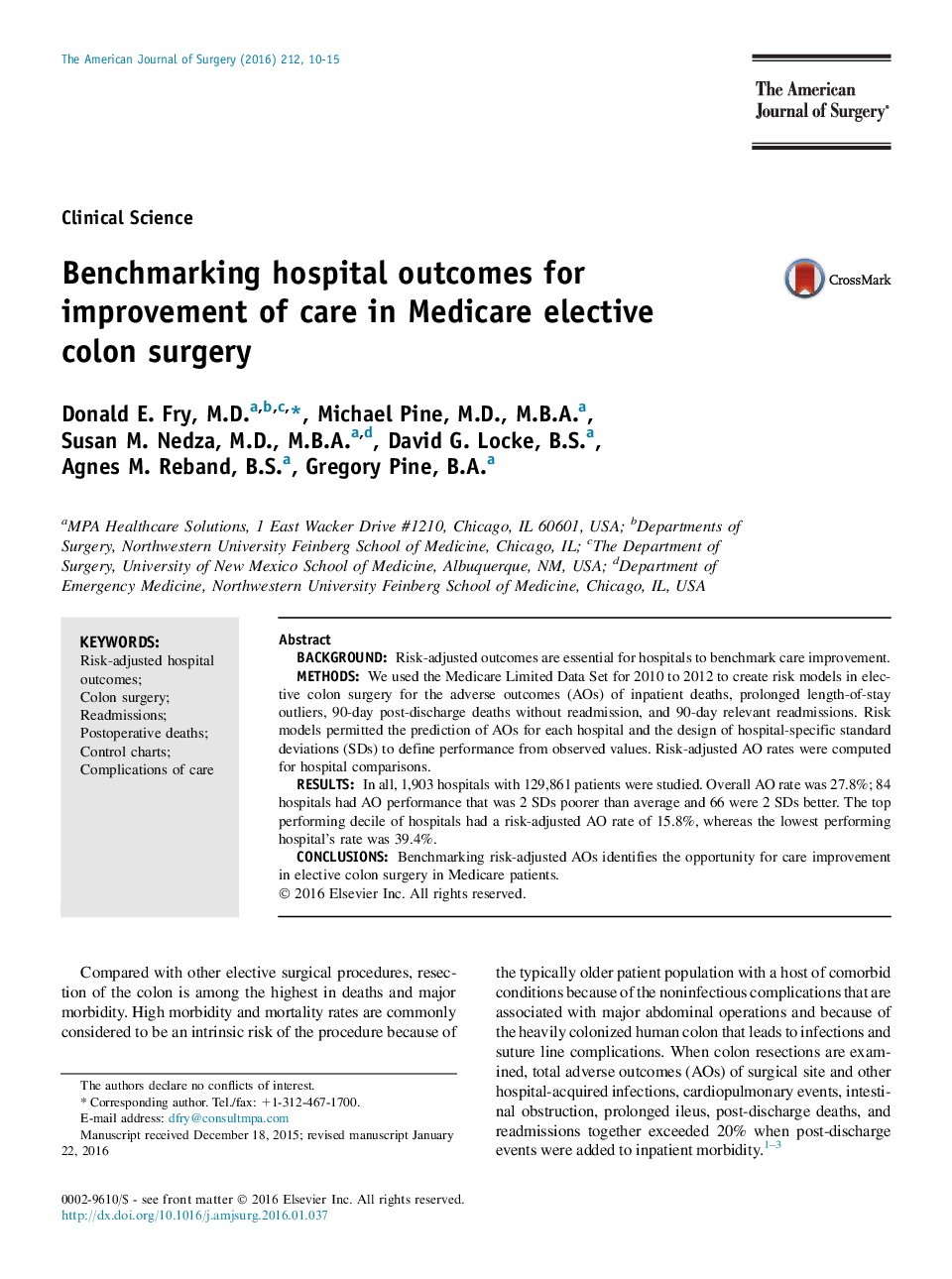| کد مقاله | کد نشریه | سال انتشار | مقاله انگلیسی | نسخه تمام متن |
|---|---|---|---|---|
| 4278112 | 1611481 | 2016 | 6 صفحه PDF | دانلود رایگان |

• Nationally, more than 25% of elective colon resections among Medicare patients have an adverse outcome of care when followed for 90 days after discharge.
• Traditional reports that do not consider the full 90-day period of post-discharge follow-up will understate mortality rates by half.
• Most adverse events following colon surgery occur after discharge.
• The dramatic differences among hospitals in risk-adjusted adverse outcomes illustrate the opportunity for improved results.
BackgroundRisk-adjusted outcomes are essential for hospitals to benchmark care improvement.MethodsWe used the Medicare Limited Data Set for 2010 to 2012 to create risk models in elective colon surgery for the adverse outcomes (AOs) of inpatient deaths, prolonged length-of-stay outliers, 90-day post-discharge deaths without readmission, and 90-day relevant readmissions. Risk models permitted the prediction of AOs for each hospital and the design of hospital-specific standard deviations (SDs) to define performance from observed values. Risk-adjusted AO rates were computed for hospital comparisons.ResultsIn all, 1,903 hospitals with 129,861 patients were studied. Overall AO rate was 27.8%; 84 hospitals had AO performance that was 2 SDs poorer than average and 66 were 2 SDs better. The top performing decile of hospitals had a risk-adjusted AO rate of 15.8%, whereas the lowest performing hospital's rate was 39.4%.ConclusionsBenchmarking risk-adjusted AOs identifies the opportunity for care improvement in elective colon surgery in Medicare patients.
Journal: The American Journal of Surgery - Volume 212, Issue 1, July 2016, Pages 10–15